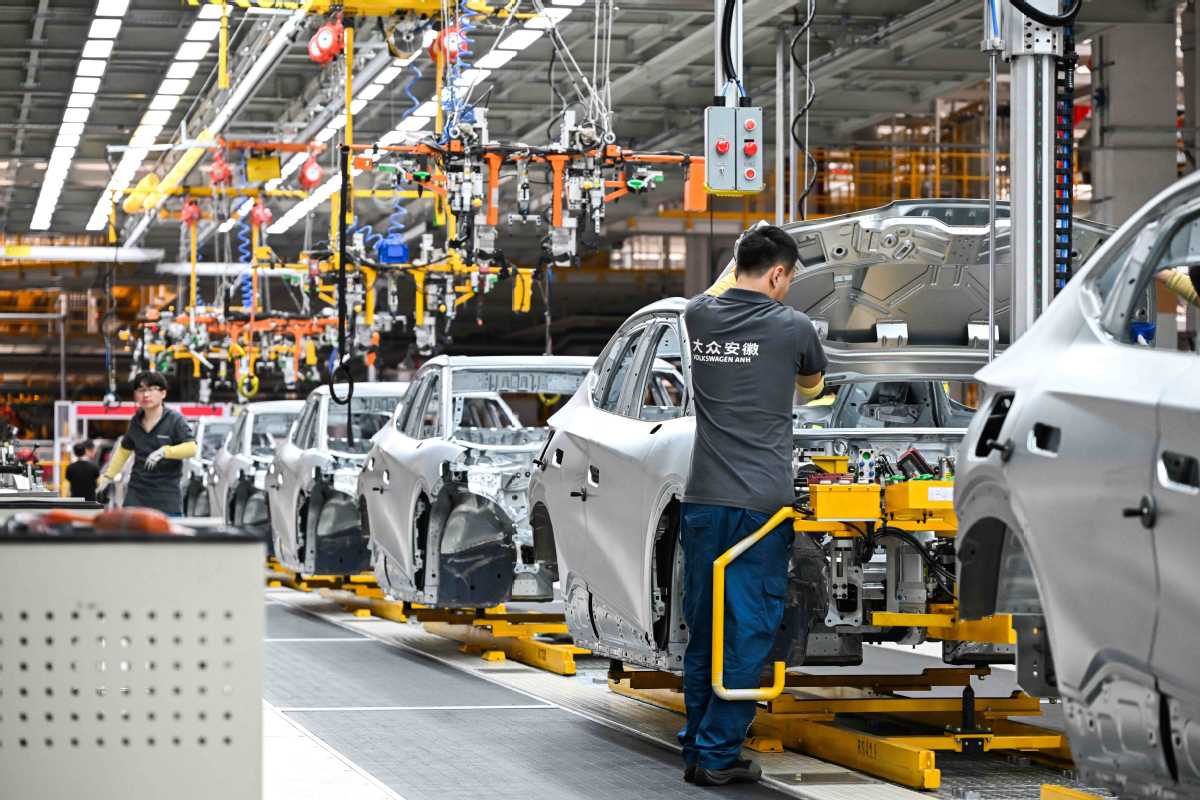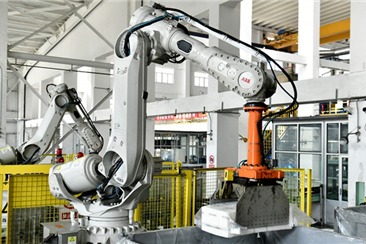German firms increasing R&D, ecosystem-level ties
55 percent of companies operating here expect their Chinese counterparts to become innovation leaders within next five years


HEFEI — As China emerges as a global hub for smart manufacturing and technological innovation, German companies are ramping up their presence and partnerships in the country, moving beyond traditional technology transfer to embrace joint R&D and ecosystem-level collaborations.
At the Sino-German Smart Manufacturing Matchmaking Conference in Hefei, East China's Anhui province, in late June, nearly 100 German enterprises, including industry leaders like BMW and Siemens, gathered to explore new opportunities, signaling a renewed momentum in bilateral industrial cooperation.
The three-day conference included field visits, matchmaking sessions and in-depth exchanges, resulting in 28 trade and investment deals worth over 6.8 billion yuan ($947.5 million). These covered a wide range of sectors, from new energy and intelligent connected vehicles to high-end equipment, life sciences, environmental protection and artificial intelligence.
For Helmut Heuser, managing director of Wurth Electronic ICS(Shenyang) Co Ltd, it was already his third trip to Anhui this year, a province now widely recognized for its high-tech orientation and smart manufacturing strengths.
"This region's automotive industry and innovation capabilities are booming," said Heuser. "We hope to gain new customers, discover new market possibilities and seize fresh opportunities here."
His company has already provided battery management systems and smart controllers for several Chinese companies, including Anhui-based auto giant JAC Motors, and is collaborating in fields like industrial robotics to co-develop new intelligent solutions.
As China's innovation engine gathers strength, Sino-German cooperation is evolving from one-way technology importing into a model of joint innovation and mutual empowerment, offering a collaborative blueprint for global smart manufacturing.
"We have been cooperating for decades and decades in the past 40 years. It was very successful, mainly because German companies brought a lot of technology here and support the Chinese companies to upgrade," said Maximilian Butek, executive director and board member of the German Chamber of Commerce in China, East China region.
However, he noted that the two sides are now engaged in a different game, as Chinese enterprises and talent are demonstrating strong innovation potential, attracting many German companies to carry out R&D in China and export technologies to the global market.
According to the 2024/2025 Business Confidence Survey by the German Chamber of Commerce in China, 92 percent of member companies plan to stay in China, and about half intend to increase their investment over the next two years.




































